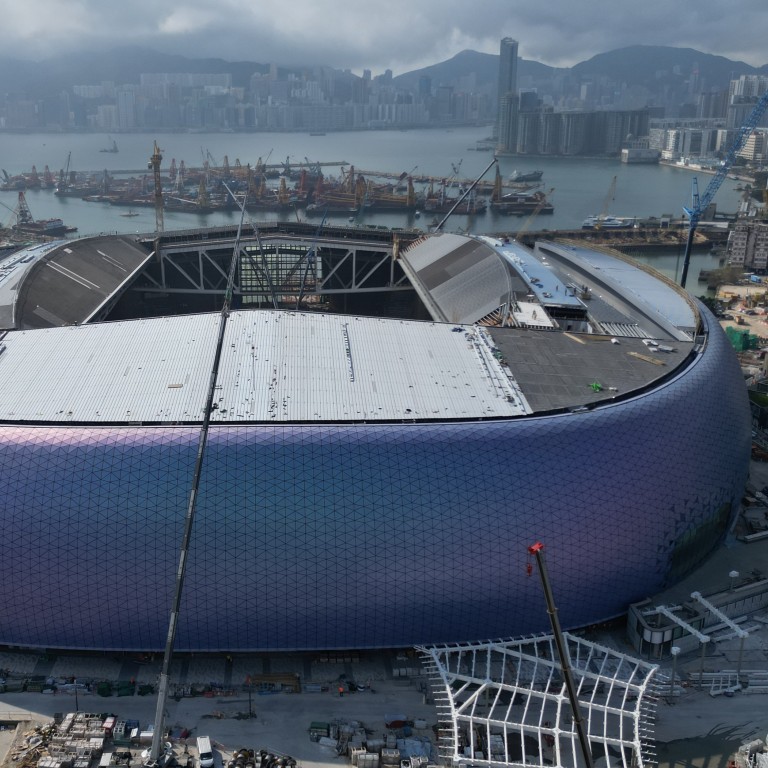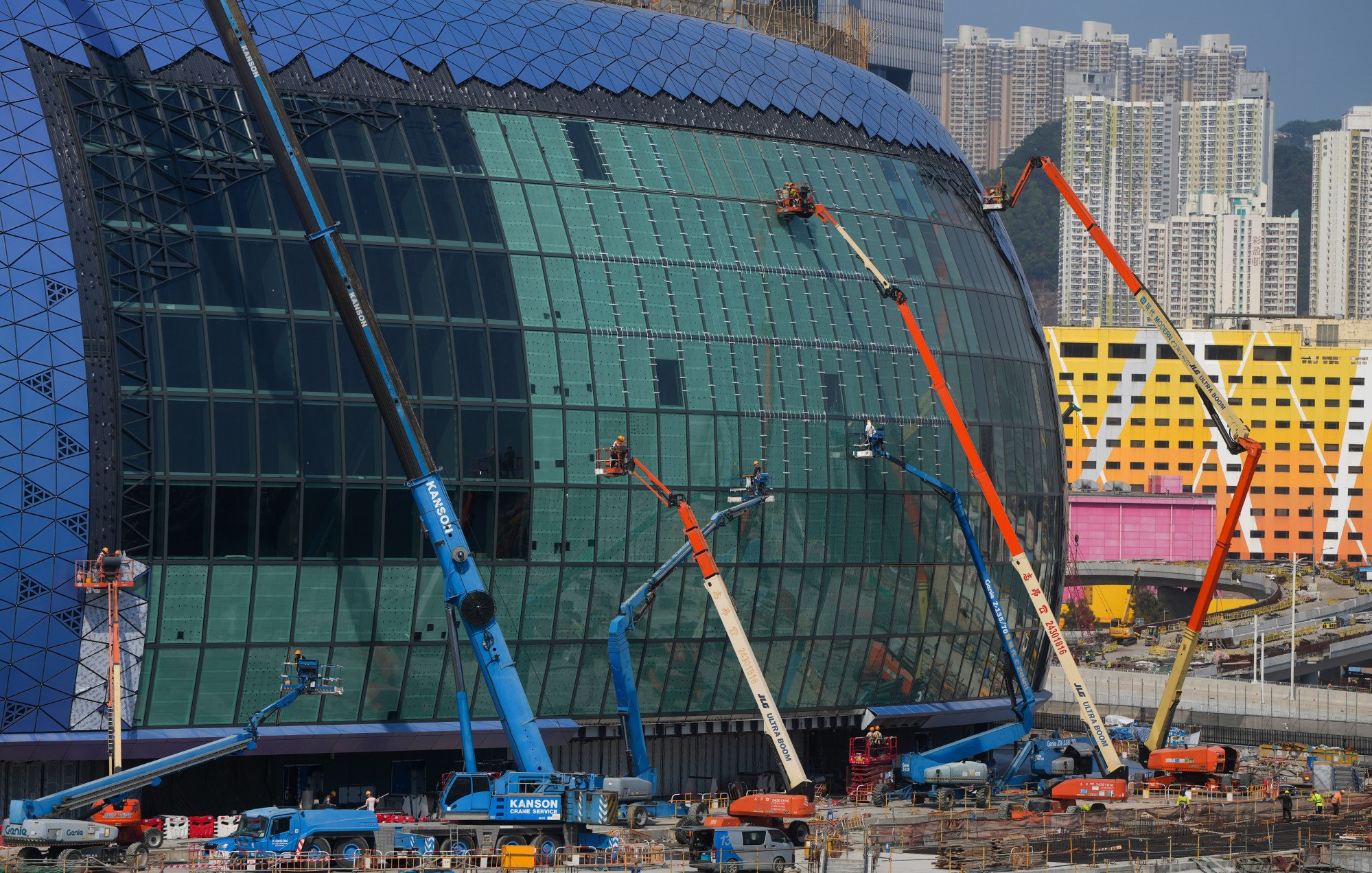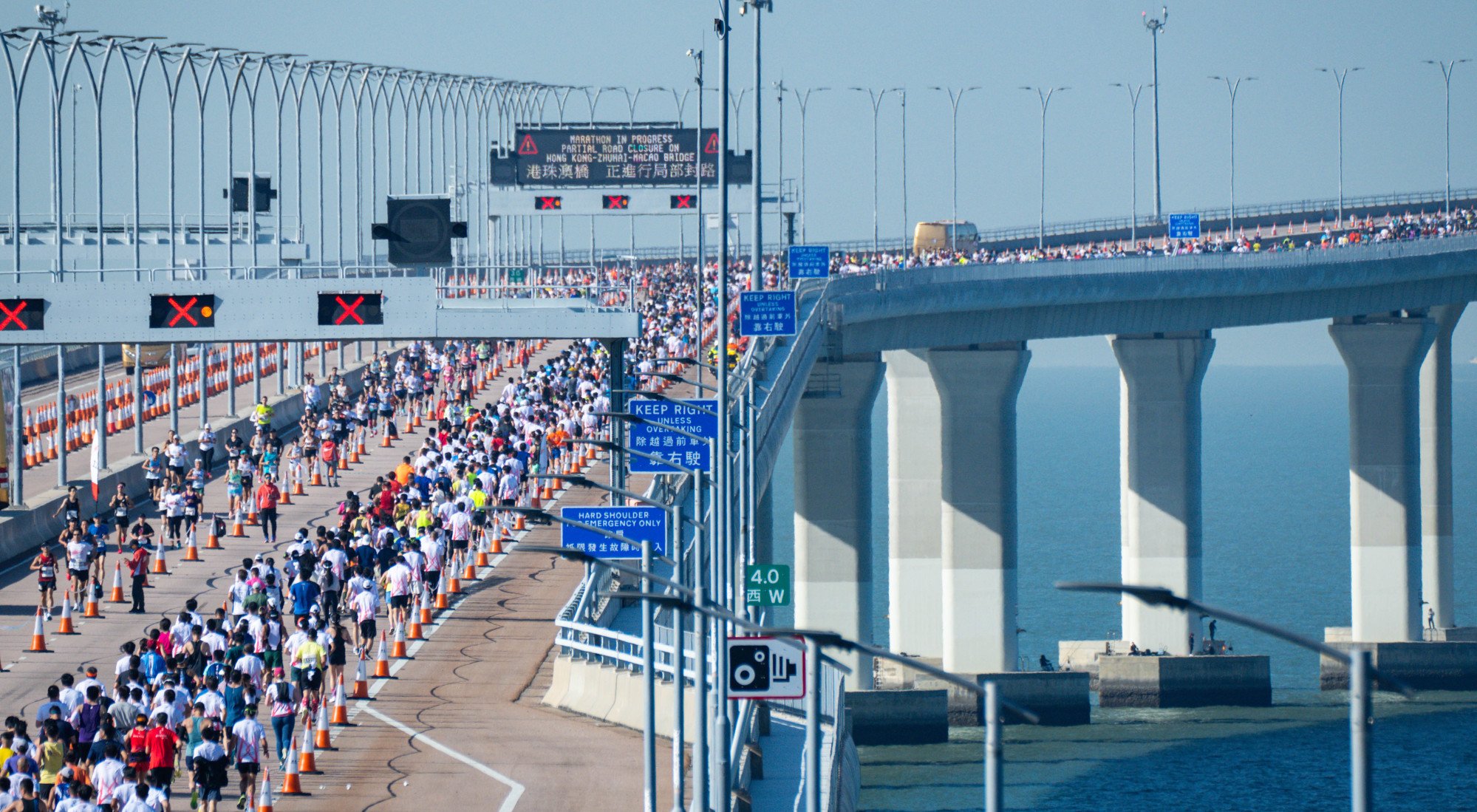
National Games 2025: co-host Hong Kong to learn from mainland’s multisport expertise
- Guangdong province to host the 15th Games alongside Hong Kong and Macau
- ‘It’s a totally different thing to organise,’ head of Hong Kong committee Yeung Tak-keung says as he reveals city will have test events and join torch relay
Hong Kong has plenty to learn from its mainland Chinese counterparts when it co-hosts the 2025 National Games, the head of the city’s office for the multisport event has said.
Yeung Tak-keung, the former commissioner for sports who leads the National Games Coordination Office, said “more experienced” fellow host cities in Guangdong province could draw on their staging of comparable events in preparing for the Games’ 15th edition from November 9 to 21 next year.
“Our main [counterpart] remains the Guangdong government,” Yeung said. “They have massive experience, having done it independently [hosting in 1987 and 2001].
“Guangzhou also hosted the Asian Games in 2010 and Shenzhen had the World University Games in 2011, so Guangdong, in terms of experience, venues and capacity, is very seasoned.”

Yeung said the central government proposed that Guangdong lead the historic cooperation with Hong Kong and Macau in co-hosting the National Games
“We have participated in the National Games many times since 1997, but it’s a totally different thing to organise one,” he said. “There are things that need to be learned.”
Co-hosting has “symbolic significance” in reinforcing the idea that Hong Kong is part of the Greater Bay Area, think tank consultant Professor Lau Siu-kai said.
“Many Hong Kong people still think the concept is only about the [mainland] cities,” said Lau, a consultant for semi-official think tank the Chinese Association of Hong Kong and Macau Studies.
The Greater Bay Area is the Beijing government’s scheme to link Hong Kong, Macau and nine mainland cities into an integrated economic and business hub.
An outline development plan unveiled in 2019 proposed that the 11 cities should jointly take forward the development of sports and organise events together.
Hong Kong lawmaker Michael Tien Puk-sun said co-hosting gave an opportunity to share expertise. He also queried whether spectators from across the nation could bypass restrictions covering visits to Hong Kong. Only residents from 51 mainland cities are entitled to enter Hong Kong outside tour groups.
“There will be a large number of domestic tourists coming to watch,” Tien said. “Will there be any special arrangements for permits? The government needs to look into such arrangements.”
With the Games 19 months away, Yeung said HK$200 million (US$26 million) had so far been set aside to facilitate preparation work. Some would be allocated for hiring the office’s personnel and promoting the Games, delayed until after this year’s Paris Olympics to avoid diverting attention.
“There could also be renovations and upgrades at the Hong Kong Coliseum, Victoria Park and Hong Kong Velodrome,” Yeung said.
“The General Administration of Sport of China [GASC] has specific requirements for the venues, so there will be site visits shortly, but I am not expecting any major or costly upgrades in these arenas.”
Yeung confirmed that test events would be held in Hong Kong venues “six to 12 months” before the Games itself.
“There will be no exceptions, despite the recent completion of world-class events across golf, triathlon and track cycling,” he said. “We are discussing with national sports associations; it could be that some planned tournaments can be regarded as test events.
“Their purpose is to inspect venues, organisation, manpower, even smaller things such as lighting and ground conditions.”
Speaking earlier on Friday in a radio interview, Yeung said there were three criteria when considering which events Hong Kong would aim to host: a suitable venue, local athletes being competitive, and which sports were popular.
Allocation of sports to host cities came through negotiation, with Hong Kong and Macau allowed to choose first but the GASC making the final call.
Windsurfing and football were dropped from Hong Kong’s proposed list, while basketball and triathlon were added. Hong Kong will also host fencing, track cycling, rugby sevens, golf, beach volleyball and handball, while bowling will be held as a mass participation event.
“We are the only [host] city who has a World Cup-level event,” Andrew Wright, Hong Kong’s triathlon head coach, said, adding he was “delighted we are hosting, and [it] applies positive pressure to all stakeholders”.

Yeung said “practical problems” were found in a windsurfing site inspection by mainland experts, related to unstable wind speeds that risked race delays. “As for football, we were aiming to host men’s under-18 matches, but the organising committee felt it’s best to group all events,” he said.
The Games’ organising committee hinted on Thursday it was studying the feasibility of routing the marathon and road cycling through Guangdong, Hong Kong and Macau, with Yeung saying using the Hong Kong-Zhuhai-Macau Bridge was an option.
He said Hong Kong would “play a part” in the torch relay but it was too soon to disclose details.
Additional reporting by Kahon Chan

 - Mike Chan.jpeg?itok=EQbwYm3R&v=1669714688)